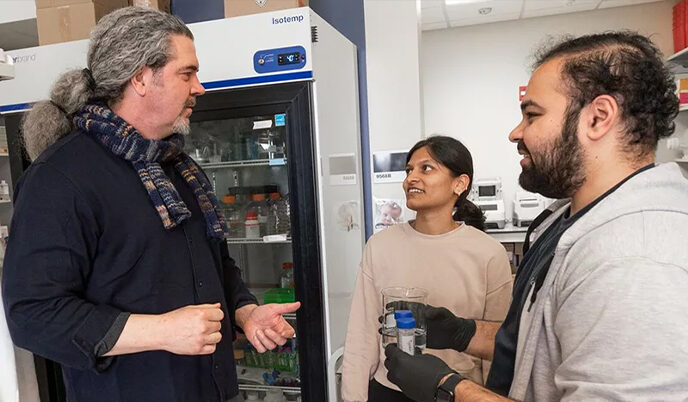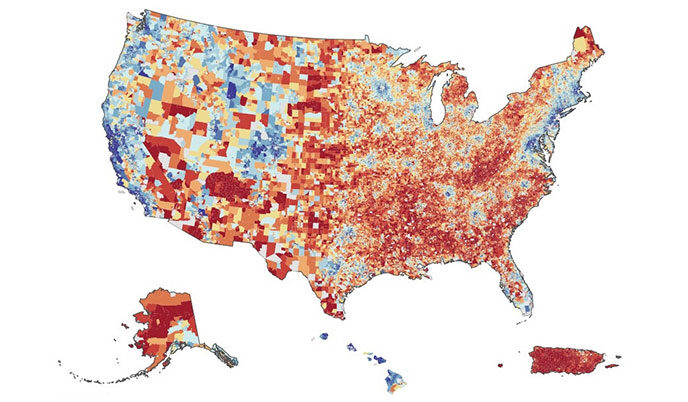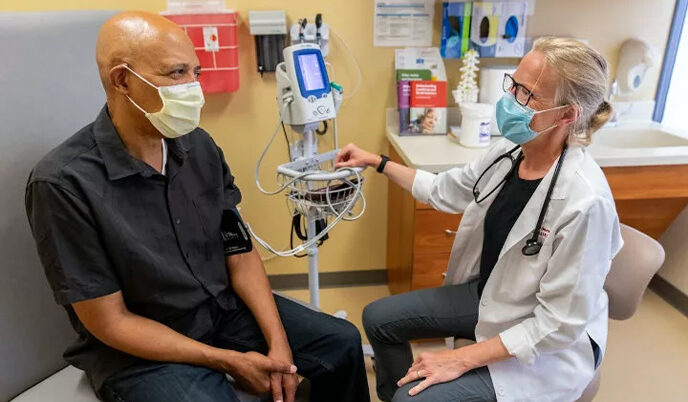
Survey highlights changes in Wisconsinites’ alcohol consumption during COVID-19 pandemic
A new survey from the University of Wisconsin School of Medicine and Public Health details which populations experienced the greatest change in alcohol use during the COVID-19 pandemic, finding that higher-earning younger adults increased drinking the most.

Ed Chapman’s tenacious approach to the “most important” problems in biology
No matter how obscure his latest study of fundamental nervous processes might seem, Ed Chapman will try to ease people’s minds.

Elizabeth Quinlan chosen as new chair of Department of Neuroscience
Elizabeth Quinlan, an accomplished research scientist and strategic leader, will be the next chair of the Department of Neuroscience at the University of Wisconsin School of Medicine and Public Health.

UW study details how HPV may promote head and neck cancer
Cancer researchers have long known that the sexually transmitted human papillomavirus (HPV) is a leading cause of head and neck cancer and now a study from the University of Wisconsin School of Medicine and Public Health sheds light on how HPV turns healthy cells into cancer.

New rankings show healthiest and least healthy counties in Wisconsin
Ozaukee County ranks the healthiest in Wisconsin and Menominee is the least healthy county in the state, according to new County Health Rankings & Roadmaps data from the University of Wisconsin Population Health Institute.

Federal agency uses UW–Madison Neighborhood Atlas research to shape national health policy
A data tool developed by UW–Madison researchers showing health-relevant metrics for every neighborhood in the United States is guiding a national model to help Medicare beneficiaries from under-resourced communities access health care more effectively.

Affordable Care Act slashed uninsured rate among people with diabetes
The Affordable Care Act (ACA) provided health insurance for an estimated 1.9 million people with diabetes, according to a newly published study.

New Osher Center for Integrative Health launches at UW–Madison
After more than a year of planning and development, the University of Wisconsin Integrative Health program officially opened the Osher Center for Integrative Health at University of Wisconsin‒Madison.

Lupus much more likely to cause cardiovascular problems in Black patients
A population-based study of the autoimmune disease lupus in Black patients shows that the risk of cardiovascular disease is strikingly high in young patients –19 times higher than in non-Blacks in the first 12 years after diagnosis – and may be predicted by a characteristic rash.

UW study focuses on Alzheimer’s disease treatment and prevention in Black adults
As the first of a new generation of Alzheimer’s disease drugs hit the market, some researchers are troubled by the lack of clinical data available on the effectiveness of these drugs in Black people.

UW–Madison joins national harm reduction research network to prevent overdose deaths
To build upon existing research and develop new strategies in harm reduction, the National Institutes of Health (NIH) has established a national research network to evaluate harm reduction services. The network will include a coordinating center and nine research studies at institutions across the country, including at the University of Wisconsin–Madison.

Alzheimer’s, related dementias cause high economic burden among Indigenous populations
Indigenous people living in Wisconsin and throughout the nation experience significant health and financial burden from Alzheimer’s disease and related dementias, according to new research published by a University of Wisconsin–Madison team and collaborators.